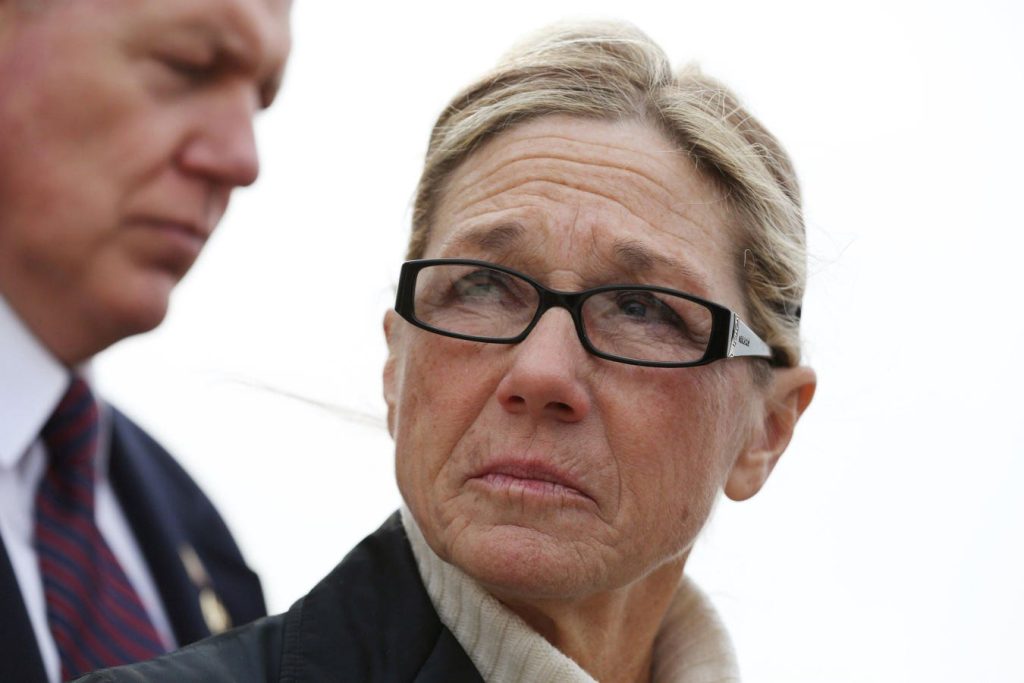Biden Grants Clemency to Nearly 1,500, Including Notorious Embezzler Rita Crundwell
In an unprecedented act of clemency, President Joe Biden commuted the sentences of 1,499 individuals, a decision the White House hailed as the largest single-day grant of its kind in modern history. This sweeping move, aimed at individuals placed in home confinement during the COVID-19 pandemic, has sparked controversy due to the inclusion of Rita Crundwell, the former comptroller of Dixon, Illinois, convicted of embezzling a staggering $53.7 million in taxpayer funds. Crundwell’s early release from home confinement, initially scheduled for 2028, has drawn sharp criticism from Dixon officials and residents who view the commutation as a betrayal of justice and a painful reminder of her devastating crime.
Crundwell’s audacious two-decade scheme, which funded a lavish lifestyle centered around her passion for American Quarter Horses, left Dixon reeling. While earning a modest $80,000 annual salary, she manipulated the city’s finances, creating a clandestine bank account to divert millions annually. This financial hemorrhage forced Dixon to implement budget cuts, impacting essential services, while external auditors inexplicably failed to detect the fraud. Crundwell’s arrest in 2012 sent shockwaves through the small town, exposing a deep betrayal of trust and leaving residents grappling with the consequences of her actions.
The federal government diligently pursued the recovery of stolen assets, liquidating Crundwell’s possessions, including hundreds of horses, vehicles, and luxury items, totaling over $12 million. Despite this effort, the vast majority of the embezzled funds remain unrecovered. Crundwell’s guilty plea to wire fraud and money laundering resulted in a 19.5-year prison sentence, of which she was required to serve 85%. Her early release to home confinement in 2021 under the CARES Act, followed by this commutation, has amplified the sense of injustice felt by the Dixon community.
The White House has defended the commutations, emphasizing the focus on individuals who demonstrated successful reintegration into society after serving time in home confinement under the CARES Act. This legislation, enacted under the Trump administration, allowed eligible non-violent offenders to complete their sentences at home during the pandemic. To qualify for commutation under Biden’s initiative, individuals had to meet specific criteria, including a minimum of one year served under home confinement, a clean disciplinary record, and no history of violence or gang involvement. While the White House has framed these commutations as an act of compassion and a second chance for deserving individuals, the inclusion of Crundwell has raised questions about the application of these criteria.
The commutation, distinct from a pardon, does not erase Crundwell’s conviction; the guilty verdict remains on her record. A pardon, on the other hand, represents a full exoneration, absolving guilt and removing all associated penalties. While Biden has granted both pardons and commutations, the decision to commute Crundwell’s sentence has generated significant public debate, particularly given the scale of her crime and its devastating impact on Dixon. The city’s leadership expressed shock and outrage, emphasizing the long-lasting financial and emotional toll of Crundwell’s embezzlement.
The case highlights the complexities of executive clemency, the tension between offering second chances and upholding the principles of justice. While the Biden administration maintains that the commutations were carefully considered and based on individual merit, the controversy surrounding Crundwell’s case underscores the challenges of balancing compassion with accountability. The White House has indicated that further pardons and commutations may be forthcoming, promising to continue the review process and explore opportunities for "meaningful second chances." However, the Crundwell commutation serves as a potent reminder of the delicate balance between mercy and justice, and the need for transparency and careful consideration in such decisions. The long-term implications of this unprecedented act of clemency, and its impact on public perception of the justice system, remain to be seen.


